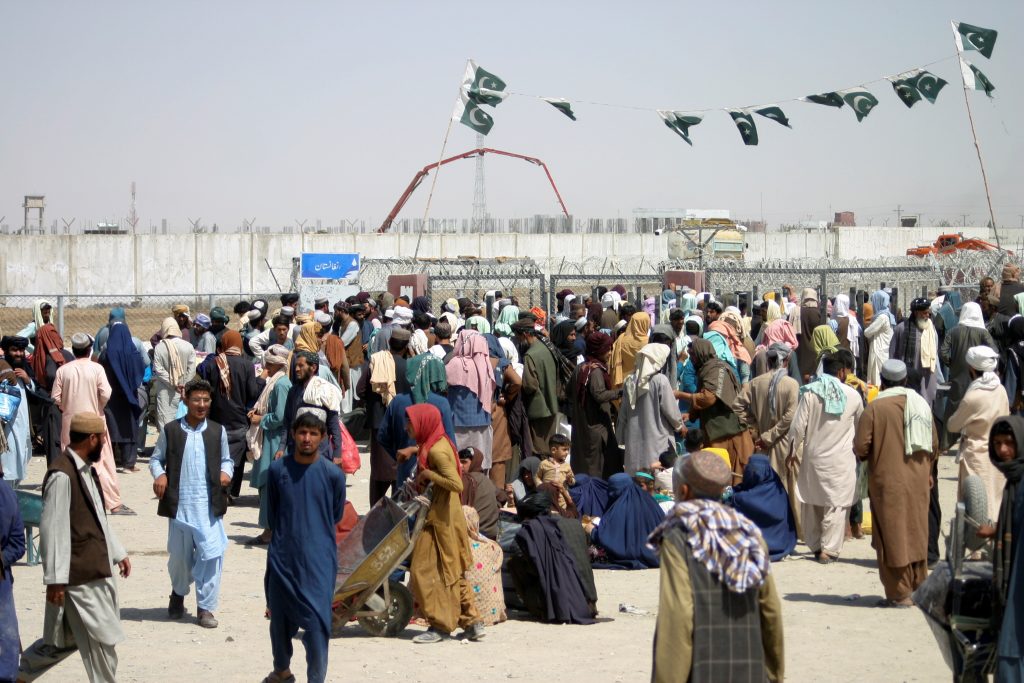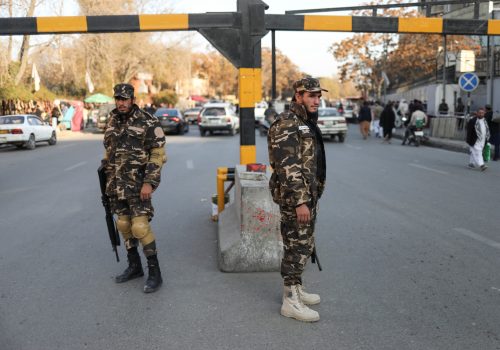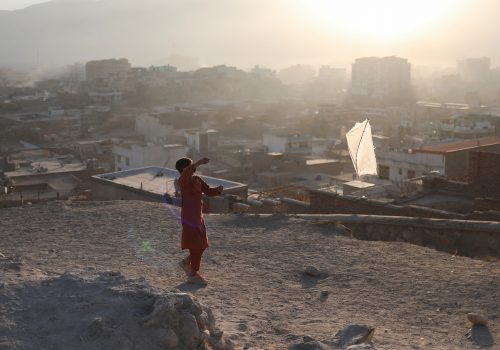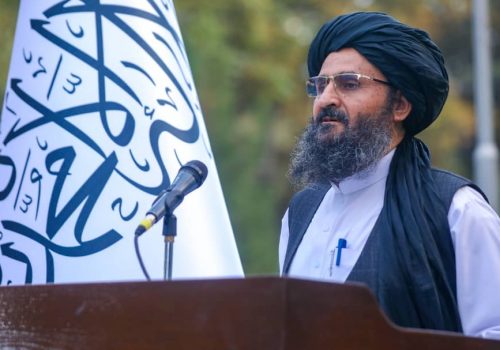This week, a commander of the anti-Pakistan terrorist outfit Tehreek-i-Taliban Pakistan (TTP) was killed by sniper fire in Afghanistan’s eastern province of Nangarhar. While no group has claimed responsibility for the attack, Afghanistan’s new ruling dispensation under the Afghan Taliban is unlikely to have had a hand in the hit, despite Islamabad’s insistence that the new regime take action against the outlawed terrorist group. Indeed, the Afghan Taliban, which swept to power last August and may well see aspects of the TTP’s hardline Islamist and anti-secular agenda as familiar, was only recently attempting to broker a still-born ceasefire between the TTP and the Pakistani state in November.
Even as Pakistan takes the lead in encouraging a reluctant international community to engage the Taliban regime in Afghanistan in hopes of averting a humanitarian and economic collapse, TTP safe havens in Afghanistan and the group’s continued terrorist violence against the Pakistani state is likely to complicate Islamabad’s relations with its western neighbor. The TTP is responsible for hundreds of deadly attacks against Pakistani civilians and security forces this past decade. Scores of TTP militants, including Maulvi Faqir Mohammad, were freed in August after the Afghan Taliban released prisoners from Kandahar, Bagram, and Kabul prisons. The downstream consequences were immediate. According to Amira Jadoon and Abdul Sayeed, August also marked the highest number of monthly attacks claimed by the TTP against Pakistan in the last six years; security personnel fatalities increased by almost 40 percent in 2021.
The TTP remains an immediate security concern for Pakistan, which has resiliently conducted intensive counterinsurgency operations while attempting to quell religious extremism at home—a phenomenon with both national security and law and order ramifications. Islamabad has repeatedly called on the Afghan Taliban to demonstrate its commitment to pledges made under the Doha agreement to ensure that Afghan soil is not used for terrorism against any other country including Pakistan. Members of the TTP, who according to UN estimates range in the thousands in Afghanistan, have reportedly been traveling to and from Kabul with ease since the Afghan Taliban took over, no doubt encouraged by the ebb in Pakistan-US coordination around counterterrorism operations.
There are at least four logics to the Afghan Taliban’s noncommittal public posture as far as the anti-Pakistan TTP is concerned.
The first is that despite certain doctrinal differences, the Afghan Taliban remains culturally sympathetic to the TTP’s alleged jihadist resistance against the Pakistani state, and vice versa. The TTP, which is known to have assisted the Afghan Taliban in combat, was quick to congratulate the Afghan Taliban on its August victory, and sees the creation of an Islamic Emirate in Afghanistan as a goal worthy of emulating in Pakistan. Links to the TTP, in turn, are said to have helped augment the Afghan Taliban’s own membership, and may oblige the Afghan Taliban to invoke the time-honored Pashtunwali code of not ejecting the TTP from the country’s eastern enclaves.
Secondly, antagonizing the TTP may risk pushing the group’s hardline factions into the arms of the Afghan Taliban’s much bigger nemesis—the Islamic State-Khorasan Province (ISIS-K). The TTP remains a fissiparous entity, and there is precedent of its factions having pledged allegiance to ISIS-K in the past. ISIS-K, which also seeks to implement its own interpretation of sharia law, has carried out deadly attacks in both Afghanistan and Pakistan and threatens the Afghan Taliban’s ability to consolidate control and govern effectively. The TTP may well use this knowledge to bribe the Afghan Taliban to allow it to continue to use Afghan soil.
Thirdly, the TTP’s presence in Afghanistan affords the Afghan Taliban a very real bargaining advantage vis-à-vis the Pakistani state, while concurrently dispelling notions of any lingering strategic co-dependence. Establishing this impression of independence is necessary for the Afghan Taliban as it looks to shore up domestic and external legitimacy, and foster new partnerships with regional players such as India. Islamabad has long accused India of sponsoring and financing not just the TTP but also Baloch separatist groups. It is therefore not unthinkable that both the Afghan Taliban and India could derive utility (albeit of different kinds) from supporting a TTP that keeps the Pakistani state in check.
Finally, the Afghan Taliban’s intransigence over the fencing of the Pakistan-Afghanistan international border could be another reason for the new regime to tolerate the TTP on its soil. The Afghan Taliban, like former Afghan governments, refuses to recognize the international border with Pakistan. The TTP, meanwhile, has recalibrated its goals in recent years to take on an increasingly ethno-nationalist flavor, going so far as to endorse the Pashtun Tahafuz Movement (PTM), a non-violent and secular protest movement demanding rights for Pushtuns in Pakistan’s former tribal areas. If greater cross-border irredentism is a natural byproduct of the TTP’s war on the Pakistani state, the Afghan Taliban may well see itself as being a net beneficiary of ensuing ethnic upheaval.
While the Afghan Taliban’s conquest of Kabul last August was viewed by many as a strategic victory for Pakistan, the reality of Pakistan’s view of the Afghan Taliban is more complex. Clearly developing divergences on both the TTP and border fencing speak to friction rather than guaranteed friendship, and as the Afghan Taliban consolidates its control over the country, Pakistan’s already limited influence over the group will only wane further. Because Islamabad’s ability to take large-scale kinetic action inside Afghanistan remains limited, as well as having now given peace talks with the TTP a chance, it will look to see whether the Afghan Taliban lives up to its commitments under the 2020 Doha Agreement between the group and the United States. If not, expect policy makers in Islamabad to become even warier of the double-barreled challenge to its national security from Afghanistan.
Fahd Humayun is a PhD candidate in political science at Yale University. He tweets @fahdhumayun.

The South Asia Center is the hub for the Atlantic Council’s analysis of the political, social, geographical, and cultural diversity of the region. At the intersection of South Asia and its geopolitics, SAC cultivates dialogue to shape policy and forge ties between the region and the global community.
Related content
Image: People gather to cross into Afghanistan at the Friendship Gate crossing point at the Pakistan-Afghanistan border town of Chaman, Pakistan September 2, 2021. REUTERS/Saeed Ali Achakzai REFILE - QUALITY REPEAT



